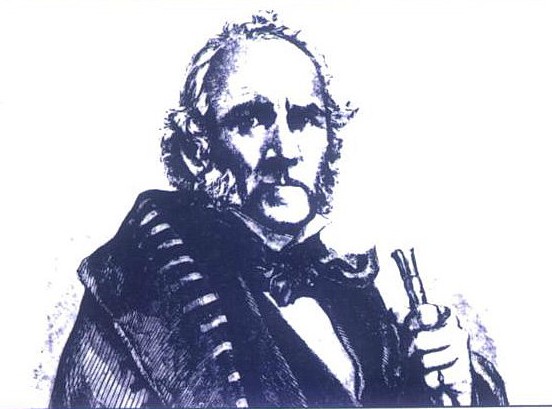The man had a shaved head grown out enough that you could see the ring of baldness atop it. The back of his neck had the roll of skin that older men tend to get when they gain 40 pounds above their fighting weight. A bead of sweat rolled down his forehead and stopped in the wrinkles at the corners of his eyes as he invited me into his home under the Mississippi sun. I traveled from my beloved Tennessee for a business trip, and had chosen to stay in an Air BnB accommodation. The house was nondescript, on a subdivision built about three miles out of town in an agricultural area. If I had to guess, I’d say it was a $250,000 house.
The man showed me in and directed me, through the living room, to the room I was renting. His home was about as unremarkable, although nice, as you can imagine. The décor was “beach house” themed, although I was several hundred miles from the Gulf. A large screen television dominated the living room, accompanied by a security camera tastefully nested between seashells. Through the hall was the bedroom, decorated with lighthouse pictures and small lighthouse figurines. As he was showing me to the room, we talked, and I learned more about the man and his house.
He had moved to the neighborhood one year prior and opened it up to guests for the extra income. He told me that it was a nice neighborhood, and quiet, but he was in the midst of getting it ready for sale. The neighborhood, he said, was changing. After a few months of living in his nice cul-de-sac, the last couple houses left for sale were sold. The new occupants didn’t cut their grass, didn’t pay their HOA dues and made quite a bit more noise than he was used to. Then a couple more houses went up for sale, and now wouldn’t you know it there were more loud neighbors and even fewer lawns getting mowed. Go figure. In fact, the HOA had decided to no longer turn on the street lights at night because of the severe decline in dues payment.
And, now here it was. That phrase we’ve all heard at some point, and we all know the meaning of, “I’m not racist, but…” You all knew it was coming. Looking out the window, I saw the basketball hoops and I could practically feel the homes depreciating in value. His neighborhood was dark and getting darker, and the man had seen the writing on the wall. This small piece of paradise he had paid through the nose was turning into a black cul-de-sac. It was no longer a “safe space.”
Now, I grew up in the country. The way we looked at it, our property wasn’t just the place we lived on. The soil was in our bones and we wouldn’t think of moving out because we didn’t like our neighbors, just as our neighbors wouldn’t knowingly sell their house to somebody who would cause strife in their community. However, these small, pop-up communities don’t have that bond of kinship. These artificial towns are plopped on the edges of metropolitan areas and the last whites left in the city flock to them as a sanctuary from the perils of city life. They expect a safe place to raise a family and are shocked when the “Equal Opportunity” housing laws make their new neighborhoods as dangerously diverse as their old homes in the city were. So instead of taking their stand and retaking their homes, they simply move from suburbia to suburbia like the rootless cosmopolitans they are.
I’m not sure what the solution for these yuppies could be. On one hand, they brought it on themselves, partaking willingly in the modern hellscape that is the Empire today. But on the other hand, they are our people and they are Southern. I hope the man who allowed me to stay in his home reads this, because I want him to see his folly. I want him to understand why he can never be comfortable around folks that aren’t his own. And, most importantly, I want him to embrace the love of his people that is instilled in any healthy Southern man and woman.
You’ve got to stop running.






At some point, there’s nowhere left to run.